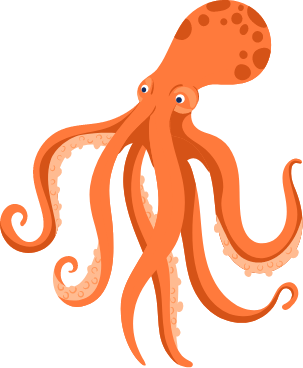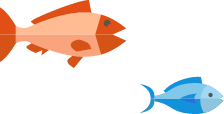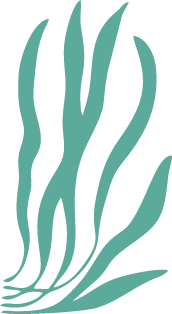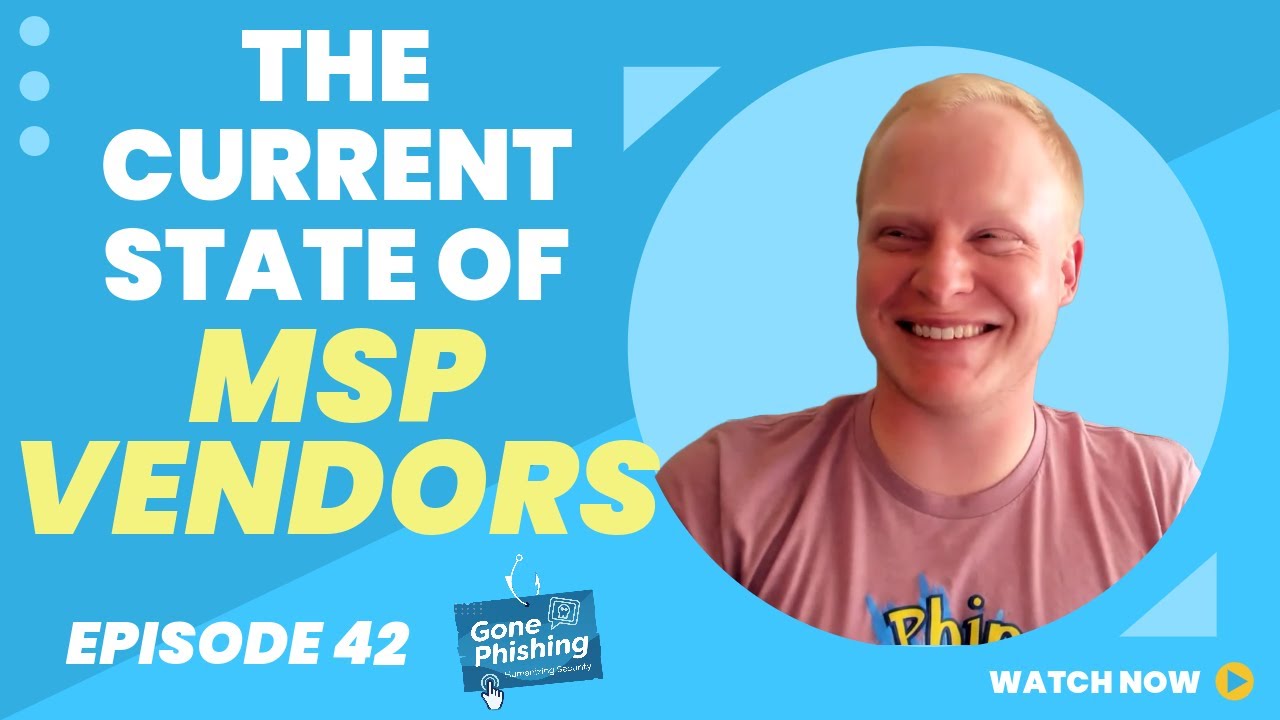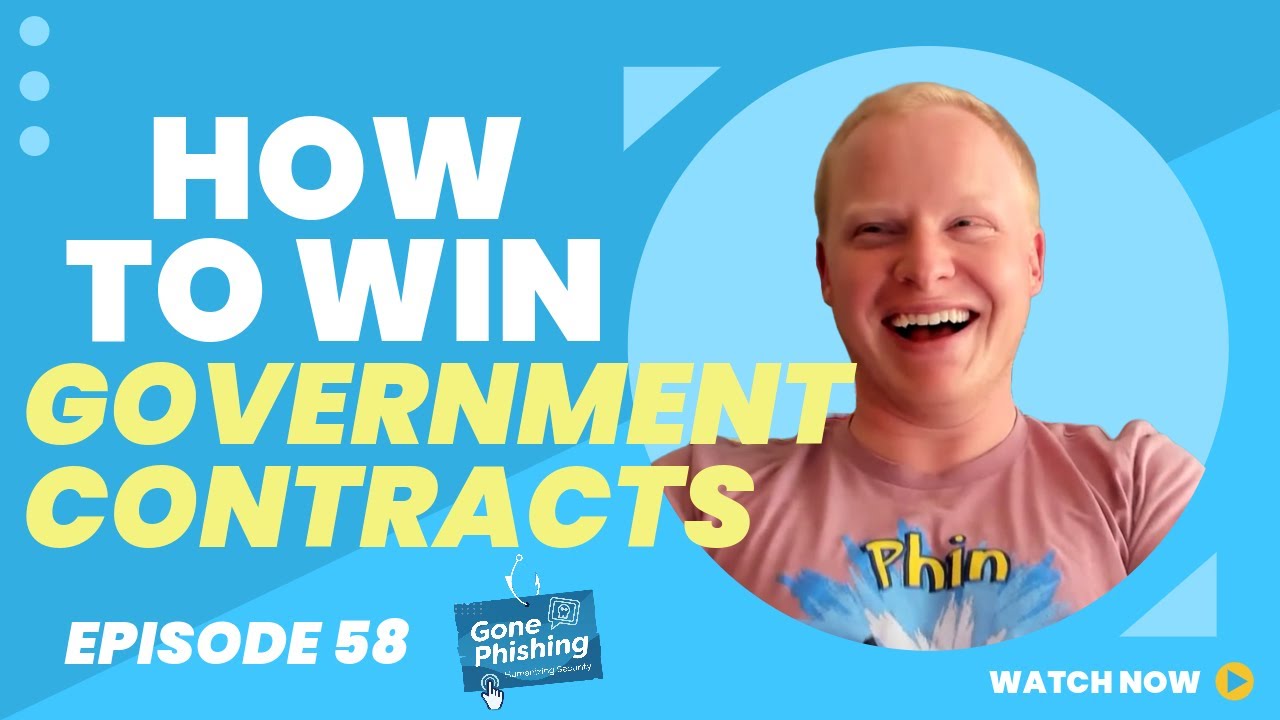
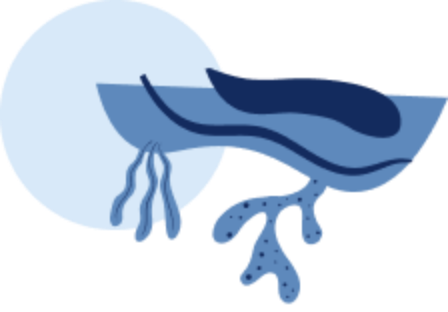
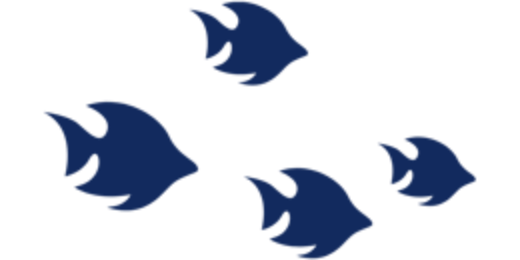
Connor Swalm: Welcome to "Gone Phishing," a show diving into the cybersecurity threats that surround our highly connected lives. Every human is different. Every person has unique vulnerabilities that expose them to potentially successful social engineering. On this show, we'll discuss human vulnerability and how it relates to unique individuals. I'm Connor Swalm, CEO of Phin Security, and welcome to Gone Phishing. Hey, everyone. Welcome back to another episode of Gone Phishing. I'm your host, Connor, the CEO at Phin, and I am joined once again by the wonderful Mary Signorelli, our director of partner experience.
Connor Swalm: Mary, how are you doing today?
Mary Signorelli: I'm doing well, thank you.
Connor Swalm: So we've been talking a bunch about team building, about integrity, about the type of people that you'd love to work with or know, to build a really high-quality, high-performing team.
Connor Swalm: And today we're chatting about what makes the MSP community so focused, something we've touched on a little bit already. But just to summarize, why do you think the MSP channel is so community-focused?
Mary Signorelli: I think it's so community-focused because the people in the community are so technologically smart that these peer groups, these community groups have all formed really around building the business, how to sell, how to market, how to help the community. So I think that when we have community events and these MSPs come together, I think you learn so much from your peers as well as these community leaders, but just having that sense of you're all fighting kind of the same battles and how do you solve a problem versus how someone solves a problem a few states away? So I think that just going online and looking at all the Facebook groups and LinkedIn groups and things like that, there's obviously a need for it. And I think that need drives the community partnerships that we see.
Connor Swalm: How do you think vendors should play a role there?
Mary Signorelli: Definitely supportive. I think that the change I've seen since I've come into the channel since 2015 is really education-focused versus selling-focused. Of course, as vendors, we have solutions to problems, but an MSP needs to know how to talk to their customers about solving the problem. And a lot of it is around education and not necessarily the solution.
Connor Swalm: Yeah, that's real early on when I was getting into the industry, that's one thing that I noticed really quickly, is that not only were the communities used to learn, but literally, it's where people went to make friends. It's where people went to hang out with a lot of their friends. Unfortunately, Covid put a damper on that for two or three years. But going to events, it's like a family reunion for a lot of people at home, completely. And arguably, sometimes family reunions are filled with drama, and sometimes you don't like some of your family members. However, a lot of the people you meet at community events or shows, it's just like you're getting back together with the gang, getting back together, so to speak.
Mary Signorelli: We're kind of like the traveling circus. We're going city to city seeing the same people. I met with a group of Dallas area vendors last week, maybe. And I was saying that I see some of them, even though we're local, I see them more on the road. I'll see them seven or eight times in a year on the road. And some of my family, I don't see seven or eight times a year. So it's definitely a family feel.
Connor Swalm: Yeah, I remember, I forget what breach this was, but there was a security breach of a widely used tool, and I was in one of the Slack communities here, and hours before the company that got breached came out and announced that they were breached and something needed to happen, the community was talking about it, about how to prevent it from absolutely screwing all of them already. The people had all come together to help educate people, which it was really cool to see the example of it.
Mary Signorelli: I would say everybody's goal is to help, whether it's their customers or each other. These peer-to-peer relationships are really important.
Connor Swalm: Where do you think people get community wrong?
Mary Signorelli: Probably joining a community for the wrong reasons. If your goal is solely to make money, I think you will fail in the community. I think you have to build those relationships. You've got to do so with integrity and trust and be just open and honest. Sometimes you have a customer that you're like, "You know what? We may not be the best fit for you, but I know that this company might be a better fit." And to be able to say that and to put that out there, I think just increases your credibility. Sometimes it's not the right fit, and you have to be willing to say that.
Connor Swalm: Yeah, I remember doing that early on. I also remember that there were times when, if you just showed up with the intention of making friends, and honestly, at the height of peak Covid, like a year and a half into it, it's just like, well, when Covid started, I was very glad. I'm a little bit of an introvert most times, very happy to sit in a basement by myself in the cool, calm, quiet, not hear anyone, not talk to anyone, and get on my computer and play video games or whatever it was, and then like a year and a half into it, it's like I would kill someone to just hug somebody. I've talked to the same four people for the last year and a half. And it was my mom, my dad, and my brother who still lived at home with us. That's one thing that really stood out, is like, oh, these are just people who are out and about just trying to make friends because they just want to be friendly and meet more cool people that are honestly a lot like them.
Mary Signorelli: Yeah, exactly. And I think that when you go to a conference and all these super technical people that spend a lot of time in front of a computer are meeting with other people that are like them, that maybe communication is not like their forte or something like that. Or was it MSP Geekcon where they had like a gaming room that people could go and just play games because that's like what they like to do? And being able to belong to something bigger than themselves, I think is huge. So there's such a sense of belonging in the community between vendors too, and competing vendors and MSPs as well. I just think I haven't seen a community, I guess, function as such a good ecosystem together as the channel.
Connor Swalm: Yeah, I always compare it to my experience in Delaware. Everybody knows if you're trying to get a job or if you're going somewhere brand new, there's a very good chance you went to school with their kids or your parents went to school together, or quite honestly, you're somehow related. And while the related part isn't quite so true about the MSP channel, it's definitely like, "Oh, you work with so-and-so, and I love them. So by extension, now I love working with you." That's increasingly so. Like references and the type of people that you've worked with and who you are is way more important than sometimes your job experience.
Mary Signorelli: Oh, yeah, for sure. And as we've seen these tech layoffs over the last probably year and a half, 18 to 24 months on LinkedIn, it's just friend after friend posting, "Hey, this person's a great catch," and like promoting other people that maybe just got laid off, but they're looking for work and being references and building each other up and helping people. I think it's just huge.
Connor Swalm: What would you say to the lurkers in communities, the people who are, I'll air quote here for those that are just listening, who are a part of it, but they're not actively engaging? How should they get involved if they're worried about it or if they just want to get off the sidelines?
Mary Signorelli: Gosh, that's a great question. One of the coolest things happened to me, I think it was at Channelcon in Vegas where I was in the elevator, I had my badge on, and this man was in the elevator with me, and we were going to one of the evening functions or whatever, and he literally said, "I'm not good at talking to people. Can I just hang out with you?" And he was the sweetest person. And I was like, "Of course, let's go." And I guess it was more of a compliment to me, thinking I must have an energy about me that says, "Hey, I'll be your friend." And taking him around, and he probably hung with us for about an hour, and he literally tapped me on the shoulder and he goes, "I think I'm going to be okay now." And I was like, "Oh, my God, that was the sweetest thing." But just knowing that the channel is just such a soft spot for knowing that everybody's welcome, everybody is enough.
Connor Swalm: What's one piece of advice you'd leave with the people that are listening?
Mary Signorelli: Oh, gosh. One thing that I have seen, and I think we've all seen this, maybe we've all done this, I don't know. But at events, there is a lot going on, a lot of free alcohol, a lot of food. I think I just had another race car go by my house if you heard that. But just when you're at these community events, pace yourself. Yeah, it's really important. And what you do when you're sober and what you do when you're not can have a lasting impact.
Connor Swalm: It could definitely have a lasting impact on people's perception of you, for sure. And I've seen many people who were embarrassed by their behavior after the fact because of, I don't know, sometimes you get caught up in "I'm with all my friends." This is one thing that I tell people when they show up: never forget this is technically a work event. So it's like, sure, have a great time. Stay out longer than you should, drink a little bit more than you should, whatever. It's like always remember that these are almost certainly the people that you will be working with. And if your job here ends, you'll probably be asking the people you're talking to right now for a job.
Mary Signorelli: I would say my last piece of advice is just always help, because one day you'll need help and it'll come back around.
Connor Swalm: You will always need help, for sure. You will always need help, and you'll be very glad when people are there willing to help you when you need it.
Mary Signorelli: Yeah, I think one example I can think of is a competitor of ours was trying to set up a big booth by themselves, and I was like, "There's no way they're going to get that done." And so you just roll up your sleeves and you help your competitors set up their booth because you want them to be successful, too. And I guarantee you if I needed the help, they'd do the same.
Connor Swalm: Nice. We should make a shirt.
Connor Swalm: Yeah. "People buy from people they like" was always my way. So it's like if I just seek out to make a friend, even when I was on sales calls early on, if I'm just here to make a friend, there are two possibilities: one, I made a friend, or two, they ended up being a customer. It's like it's a win either way. It wasn't a win or a lose. It was, "Well, I either win here or I win here." And that's how I always thought about it. And I think it really served us well so far.
Mary Signorelli: Yeah, I totally agree.
Connor Swalm: Once again, I am Connor, CEO at Phin Security, host of the Gone Phishing podcast, the one you've been listening to, and we will see you next time. Thanks so much for tuning in to Gone Phishing. If you want to find out more about high-quality security awareness training campaigns, how to launch them in ways that actually engage employees to change their habits, then check us out at Finsecurity at Finsec.io. That's P-H-I-N-S-E-C.I-O. Or click all of the wonderful links in our show notes. Thanks for fishing with me today and we'll see you next time.
